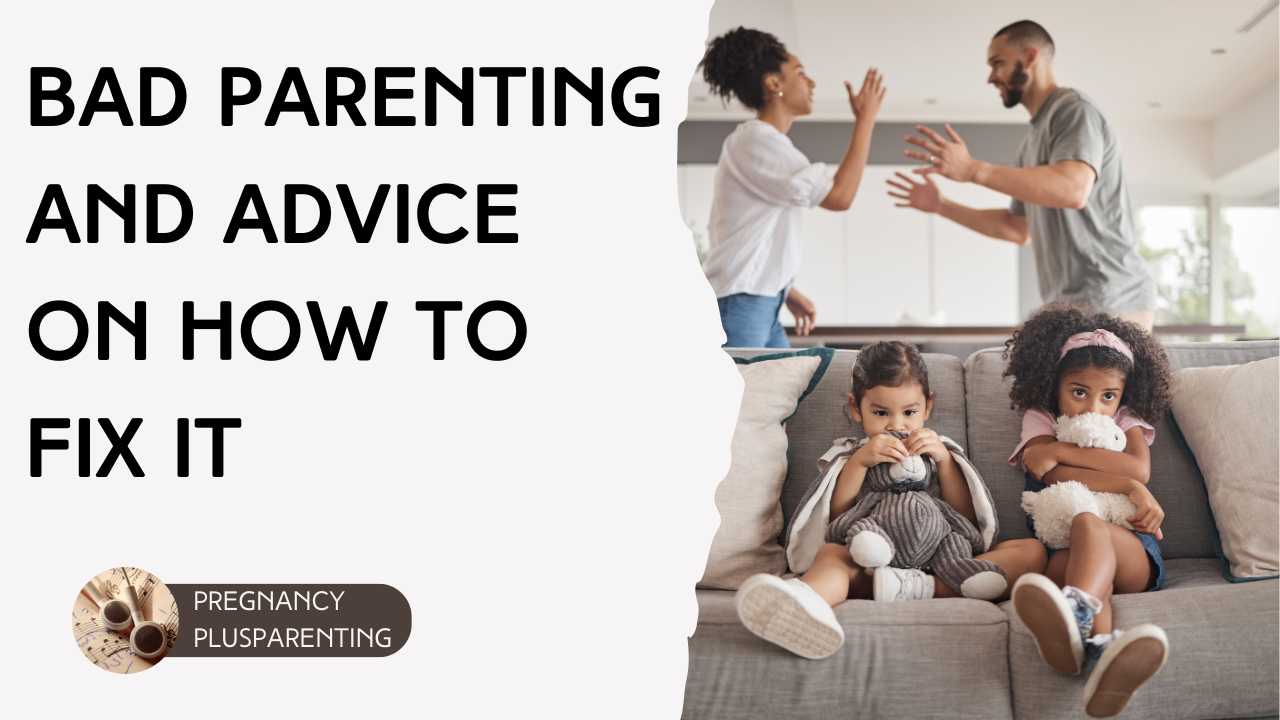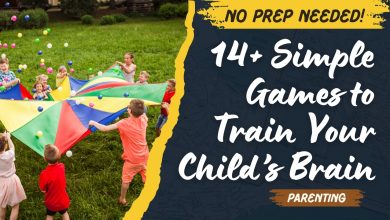Bad Parenting and Advice on How to Fix It
One of the most rewarding and difficult jobs in life is being a parent. However, there are times when well-intentioned actions or neglectful behaviors can result in what is commonly termed as “bad parenting.” While no parent is perfect, consistently harmful parenting practices can have a detrimental effect on a child’s social, mental, and emotional growth. The good news is that these behaviors can be identified and corrected. Here, we’ll explore signs of bad parenting, their effects on children, and practical advice to fix them.
What is Bad Parenting?
Bad parenting refers to patterns of behavior or parenting styles that negatively influence a child’s development. It often stems from stress, lack of awareness, or repeating generational habits. Bad parenting isn’t about occasional mistakes; rather, it’s consistent actions or inactions that harm a child’s growth.

Signs of Bad Parenting
1. Lack of Attention and Emotional Support
Neglecting a child’s emotional needs, failing to listen, or not providing love and affection can lead to emotional detachment and low self-esteem.
2. Overly Critical Behavior
Constantly pointing out flaws, comparing to others, or setting unrealistic expectations can make children feel unworthy and anxious.
3. Inconsistent Discipline
Swinging between permissiveness and strictness creates confusion and insecurity in children.
4. Physical or Verbal Abuse
Shouting, insults, or physical punishment can damage a child’s emotional well-being and trust in relationships.
5. Overprotection
Shielding a child from all challenges limits their ability to develop independence and resilience.
6. Favoritism
Showing preference for one child over another fosters sibling rivalry and resentment.
7. Neglecting Educational Guidance
Failing to provide a learning-conducive environment or not taking an active interest in a child’s education can hinder academic success.

Effects of Bad Parenting on Children
1. Emotional and Psychological Issues
Children raised with bad parenting may experience anxiety, depression, or difficulty managing emotions.
2. Poor Social Skills
They may struggle with forming healthy relationships due to a lack of emotional intelligence or trust.
3. Low Self-Esteem
Feelings of inadequacy can result from unrelenting criticism or neglect.
4. Behavioral Problems
Aggression, defiance, or withdrawal are common in children exposed to negative parenting practices.
5. Poor Academic Performance
A lack of support or an unstable home environment often affects focus and motivation in school.
How to Fix Bad Parenting
Correcting bad parenting involves self-awareness, consistency, and a willingness to adapt. Here’s how you can start:
1. Reflect on Your Parenting Style
Take an honest look at your behaviors and identify areas where you might be falling short. Consider keeping a journal to track moments where you feel you could have handled situations better.
Practical Steps:
- Ask yourself, “How do my actions make my child feel?”
- Seek feedback from your partner, trusted friends, or even your child.
2. Build Emotional Connections
Children need to feel loved and valued. Strengthen your bond by being present and emotionally available.
Practical Steps:
- Spend quality time daily, such as playing games or talking about their day.
- Show affection through hugs, smiles, and words of affirmation like, “I’m proud of you.”
3. Practice Positive Discipline
Replace punitive measures with constructive discipline that focuses on teaching rather than punishing.
Practical Steps:
- Establish consistent, unambiguous rules and provide justifications.
- Employ natural consequences, such as “You won’t have time for TV if you don’t finish your homework.”
- Praise good behavior to encourage repetition.
4. Control Your Temper
Yelling or overreacting can escalate conflicts and harm your child’s emotional health. Learn to manage your own emotions before addressing misbehavior.
Practical Steps:
- Take deep breaths or step away to cool down before responding.
- Use calm, respectful language to explain your concerns.
5. Encourage Independence
Overprotective parenting can stifle growth. Let your kids make choices and grow from their errors.
Practical Steps:
- Assign age-appropriate responsibilities, like tidying their room or helping with meals.
- Let them handle minor conflicts with peers on their own, intervening only when necessary.
6. Show Fairness and Avoid Favoritism
Treat all your children equally, acknowledging their individual strengths and needs.
Practical Steps:
- Spend one-on-one time with each child.
- Avoid comparing siblings by focusing on their unique qualities.
7. Be Actively Involved in Education
Support your child’s learning by creating an environment that fosters curiosity and academic success.
Practical Steps:
- Offer homework assistance or have a conversation about what they learnt in class.
- Attend parent-teacher meetings and show interest in their academic progress.
8. Apologize and Acknowledge Mistakes
Children appreciate honesty and humility. Admitting when you’re wrong teaches them accountability and the value of repairing relationships.
Practical Steps:
- Say, “I’m sorry I yelled earlier. I was frustrated, but that’s not your fault.”
- Discuss how you’ll handle the situation better next time.
9. Educate Yourself on Parenting Techniques
Parenting is a skill that requires continuous learning. Educating yourself can provide tools to improve your approach.
Practical Steps:
- Read books, attend workshops, or join parenting groups.
- Explore online resources to understand child psychology and development.
10. Foster Open Communication
Encourage your child to share their feelings and opinions without fear of judgment.
Practical Steps:
- Practice active listening by giving full attention and asking clarifying questions.
- Reassure them by saying, “You can tell me anything, and I’ll listen.”
11. Address Your Own Stress
Parental stress often leads to negative behaviors. Managing your stress levels can help you parent more effectively.
Practical Steps:
- Practice self-care through exercise, hobbies, or mindfulness.
- Seek professional counseling if needed to address underlying issues.
12. Build a Support Network
Parenting is easier with a village. Surround yourself with friends, family, or professionals who can provide advice and encouragement.
Practical Steps:
- Join parenting groups to connect with others facing similar challenges.
- Lean on trusted family members for support during tough times.

Real-Life Examples of Fixing Bad Parenting
Scenario 1: Inconsistent Discipline
Problem: A parent alternates between being overly strict and permissive.
Solution: Establish clear, consistent rules and follow through with appropriate consequences, regardless of the situation.
Scenario 2: Lack of Emotional Availability
Problem: A parent is always distracted by work or devices.
Solution: Set aside dedicated time each day to engage with the child without distractions, such as during dinner or bedtime.
Scenario 3: Frequent Yelling
Problem: A parent often yells in frustration when the child misbehaves.
Solution: Learn to pause before reacting and use a calm tone to address the issue constructively.

The Benefits of Fixing Bad Parenting
By addressing and improving harmful behaviors, you can:
- Strengthen your bond with your child.
- Boost your child’s confidence and emotional well-being.
- Foster a positive, harmonious family environment.
- Lay the foundation for your child’s future success and happiness.
Conclusion
Bad parenting doesn’t mean you’re a bad parent—it means there’s room for improvement. By recognizing harmful patterns and taking steps to correct them, you can create a nurturing and supportive environment where your child can thrive. Remember, parenting is a journey, and it’s never too late to make a positive change.






